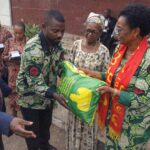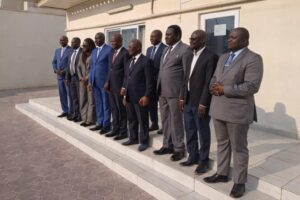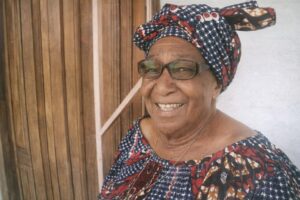Two-day forum aims for reset
Brazzaville is bracing for a two-day gathering that could redefine the nation’s women’s game. The Congolese Football Federation, FECOFOOT, has scheduled a “Reflection Day on Women’s Football”, convincing club presidents and league officials to sit together and draft an emergency recovery roadmap.
Federation president Jean-Guy Blaise Mayolas confirmed the plan on 31 October 2025 during a working session with club managers. “Women’s football deserves the same rigour, vision and passion as the men’s game,” he told them, framing the upcoming forum as a turning point rather than a consultation.
Shrinking teams, fading league
Over the past decade, roster sizes have slipped, some clubs folding entirely. Coaches cite dwindling sponsorship, injuries left untreated and players migrating toward more profitable pursuits. The national championship, once contested by a dozen sides, ran last season with barely half that number.
FECOFOOT’s technical department warns that without intervention, the pyramid feeding the senior squads will collapse. Grass-roots tournaments organised in schools now struggle to gather ten teams. In rural districts, young girls often train against boys because no female age group exists nearby.
Money, pitches and spare time
The workshops will first revisit the national-league format. Club accountants argue that a home-and-away calendar across four zones drains fuel budgets and forces players to miss work. Some propose regional mini-tournaments leading to a Final Four in Brazzaville to cut travel.
Infrastructure will dominate the second workshop. Only two stadiums currently meet minimum safety standards for elite women’s matches, according to federation inspectors. Many training grounds double as public parks, meaning sessions finish at dusk when the lights stay dark.
Financing shadows every discussion. Outside the rare corporate patron, squads rely on parents supplementing bus fares and meals. Mayolas acknowledges that sustainable funding demands clearer governance. He hints at a dedicated women’s football fund within FECOFOOT’s next budget to guarantee match bonuses.
Balancing boots and daily life
Several captains invited to the forum plan to share personal stories of time management. Many juggle classes, market stalls or family duties before evening practice. Goalkeeper Mireille Mouyabi says she studies accounting at dawn, sells phone credit until noon, then changes into boots by four.
The federation hopes to present a pilot agreement with the Ministry of Education allowing young talents flexible school timetables during competition months. Discussions are also under way with employers’ unions to formalise part-time contracts for senior players, echoing schemes used by handball clubs.
Shifting mindsets, inspiring girls
Off the pitch, stereotypes remain a stubborn opponent. Some parents still believe football is too rough or unladylike. Sports sociologist Françoise Mabiala argues that visual role models make a difference: “When girls see a defender on television wearing national colours, they picture themselves there.”
FECOFOOT plans a media campaign before the next school year, featuring short videos on bus screens and TikTok. The clips will follow two academy players from training to homework, under the slogan “Same Dream, Same Field”. Production is expected to involve local influencer Nzete TV.
Clubs put expectations on paper
In the run-up to the forum, club presidents circulated a draft charter demanding transparent prize money, a uniform medical protocol and annual coaching licences for women’s teams. They want FECOFOOT to guarantee at least one certified physiotherapist at each national-league fixture, echoing CAF recommendations.
Another request involves data collection. Tactical analyst Prisca Ngatsongo argues that without filmed matches and performance statistics, scouts overlook Congolese talent. The charter proposes appointing media interns to record every top-flight game, with footage hosted on a centralised platform open to fans and recruiters.
After the whistle: measuring progress
FECOFOOT has promised to publish a six-month scorecard after the event. Indicators will include wp-signup.phped players, sponsorship deals signed and average stadium attendance. Mayolas says the federation will invite the same stakeholders back in mid-2026 to compare numbers and adjust policy.
Observers argue that clear timelines are key. “We have organised fine seminars before, then the report slept in drawers,” recalls former midfielder Angèle Okouala. She believes the public must be updated via quarterly press releases, turning the community itself into a watchdog of progress.
For now, anticipation runs high. The stadium corridors buzz with talk of renewed rivalries and televised finals. If the forum translates words into funding and fixtures, a new generation could soon lace up on greener pitches, giving Congolese supporters another reason to sing on match day.
Local television channel Télé Congo has already booked live slots for the forum’s opening ceremony, a rarity for a technical meeting. Sports editor Brice Ndinga hopes broadcasting the debates will demystify governance and show young viewers that policies are shaped by people like them.
Meanwhile, Brazzaville’s informal vendors prepare for extra foot traffic around the federation headquarters. Street-food seller Mama Laurette plans to double her stock of grilled plantain, expecting hungry delegates between sessions. “When football grows, our small businesses grow too,” she smiles, flipping a plantain over the charcoal.






















